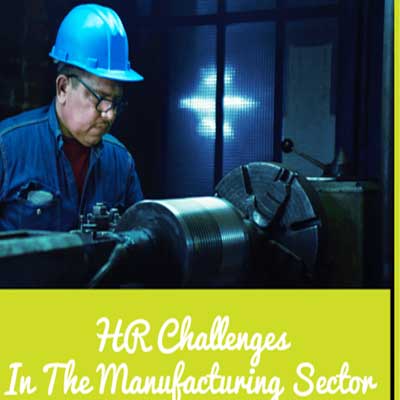Major HR Challenges in The Manufacturing Industry | Aparna Sharma | Consulting Editor | The People Management
 The manufacturing industry is a true embodiment of today’s changing workplace. That fast-paced trajectory makes smart, agile HR practices an absolute must if companies want to keep up.
The manufacturing industry is a true embodiment of today’s changing workplace. That fast-paced trajectory makes smart, agile HR practices an absolute must if companies want to keep up.
Here are 4 major HR challenges the manufacturing industry is facing, and how your company can adapt to overcome them:
I. Staffing Shortages
With baby boomers on their way to retirement, there’s a major workforce gap in the making. Even with automation on the rise, many manufacturing jobs will still need humans where more complex decision-making skills are required. Current trends estimate that more than 3.5 million manufacturing jobs will become vacant within the next 10 years.
Appealing to the next generation of employees means meeting them where they are – online – and understanding their desire for a job that offers gratification beyond a paycheck. Pay isn’t enough to sway potential job candidates. Many are looking for personal fulfilment, the chance to make a difference, and develop new skills.
II. Employee Engagement
With a mostly de-localized workforce – and a large one at that – employee engagement has remained to be a low priority in the manufacturing industry. Even with steady job growth in previous years, the industry has been unsuccessful in effectively engaging its workforce.
To bridge the gap across several locations, firms should work to foster relationships with trade unions, building a two-way channel for communication between management and employees.
III. Recruitment Issues
It’s not uncommon for most vacant positions in the manufacturing industry to be highly specialized, which limits the scope of potential placements by default. Stifled budgets and a lack of presence on college campuses compound the problem, making gaps even more difficult to fill.
Manufacturing firms need to adapt if they wish to compete with other industries to find success. Their HR departments must become more versed in current talent acquisition trends and emphasize a strategy that communicates the excitement and innovation coming from the industry.
IV. Education and Training
Creating an environment where employees are equipped to handle industry challenges and provided with ongoing training and development is crucial in reducing turnover and retaining top talent. There are few areas that are matched in importance for the industry to remain competitive as an employer.
Establishing clear, goal-oriented personal and professional development pathways will allow manufacturing firms to reap the rewards of higher job satisfaction and employee engagement.
In Conclusion
The manufacturing industry is expanding quickly, with few signs of slowing down any time soon. If employers want to meet market demands and compete globally in the job market, they’ll need to focus on adapting to the changing workplace and adopt creative strategies to address today’s unique industry challenges.


